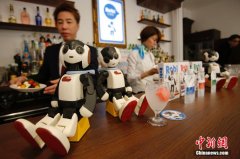Will the Chinese Association of Science and Technology say that long-term drinking coffee will be harmful to the human body?
At present, the issue of food safety has become one of the social hotspots that the Chinese people are most concerned about. there are numerous food safety problems exposed in the media. how should we treat the food problem? for this reason, the Science Popularization Department of China Science and Technology Association and the China Society of Food Science and Technology have organized experts to write "Scientific interpretation of the focus of Public concern" and made relevant answers to "Food Safety". To help the public understand food safety risks and defuse food safety fears.

What is ochratoxin? Will long-term drinking coffee do harm to the human body?
Expert answer: ochratoxin is a toxic fungal metabolite. Ochratoxin is a group of toxic metabolites produced by pure Penicillium, Aspergillus ochre and Aspergillus Niger, which are similar in structure and mainly endanger the kidneys of humans and animals. There are four compounds A, B, C and D, among which Ochratoxin A (OA) is the most toxic, the most closely related to human health and the most widespread pollution to crops. Ochratoxin A has strong hepatotoxicity and kidney toxicity. It also has teratogenic, mutagenic and carcinogenic effects. Because ochratoxin A-producing bacteria are widely distributed in nature, therefore, including cereals, dried fruits, grapes and wine, coffee, cocoa and chocolate, Chinese herbal medicine, seasonings, canned food, oil, olives, bean products, beer, tea and other crops and foods can be contaminated by ochratoxin A, which is one of the main dietary pollutants in some European countries.
The pollution rate, pollution level and pollution rate of ochratoxin A to coffee are low, and only a few countries have established the limit standard of aflatoxin An in coffee. Many countries with coffee drinking habits in the world, especially the United Kingdom, Germany, Denmark, Switzerland, Sweden, the Netherlands, Spain and other European countries, as well as the United States, Japan, Brazil and other countries have conducted extensive studies on the pollution and human exposure of aflatoxin An in coffee, but the results show that the pollution rate and pollution level of ochratoxin A to coffee are low. The researchers tested the ochratoxin An in 116 instant coffee samples from different countries and enterprises. The results showed that the pollution level of ochratoxin An in instant coffee made from pure coffee beans was very low (an average of 1.1 μ g / kg), while that in instant coffee mixed with coffee shell was slightly higher, 5.9 μ g / kg, and the highest pollution level was 15.9 μ g / kg. At present, more than 40 countries in the world have stipulated the limit of ochratoxin An in grain and its products, fruit wine, dried fruit and infant food, but only a few countries have established the limit standard of aflatoxin An in coffee, such as Greece, Bulgaria, Cuba, Hungary, Uruguay, Singapore and Italy, the limit is between 2.5 ~ 50 μ g / kg.
The risk of harm to human health caused by drinking coffee is extremely low. Ochratoxin An is one of the major dietary exposure pollutants in European countries, so it is most appropriate to use the grain intake and ochratoxin A pollution levels of European countries provided by the Global Food Pollutant Monitoring Network (GEMS/Food) to assess the risk of ochratoxin An exposure in people. According to the dietary characteristics of Europe, the contaminated materials of aflatoxin An in all reported grains were collected and the weighted average was put forward. According to this principle, an European adult weighing 60 kg has an average weekly intake of 45 ng/kg.bw of ochratoxin A (25 ng from grains, 10 ng from wine and 1.5 ng from pork. The amount of ochratoxin A from grape juice and coffee is about the same, both 2-3 ng, in addition to about 1 ng from other foods. The results show that although ochratoxin An is detected in coffee in many countries, due to the low level of pollution and the fact that the intake of coffee is lower than that of foods consumed such as cereals and animal foods, coffee is not the main source of dietary exposure to ochratoxin An in countries with coffee drinking habits. In other words, the risk of drinking coffee to human health is very low.
In view of the fact that at present, coffee (including raw materials and products) sold in China is mainly imported, compared with tea and other drinks, coffee is not the main drink of our people, and the consumption is relatively low. With reference to the pollution level of aflatoxin An in foreign coffee, Chinese people have a lower risk of ochratoxin An exposure through coffee, and have less adverse effects on health, so consumers do not need to panic.
Important Notice :
前街咖啡 FrontStreet Coffee has moved to new addredd:
FrontStreet Coffee Address: 315,Donghua East Road,GuangZhou
Tel:020 38364473
- Prev

Boutique Coffee campaign 2015 Pu'er Coffee Culture week launched
The 2015 Pu'er Coffee Culture week will open at Fangli Food City in Chuangji Shangcheng on January 24th. As one of the activities of Culture week, the third Pu'er Coffee Raw Bean Competition kicked off on January 14. The contents of 2015 Pu'er Coffee Culture week include the final of the third Chinese Pu'er Coffee Cup World siphon Pot Competition, and the third.
- Next

Tokyo Cafe surprised to find that robot service customers can interact with robots.
Recently, Robi cafe held a media preview in Tokyo, Japan, where customers can interact with intelligent robots while enjoying food and beverage.
Related
- Can lightly roasted coffee beans be used to extract espresso? How finely should you grind high-quality coffee beans to make Italian latte?
- What is the difference between the world's top rose summer coffee and Yejia Shefi? What are the flavor characteristics of Yega Shefi coffee and Panama rose summer?
- The ceremony is full! Starbucks starts to cut the ribbon at a complimentary coffee station?!
- A whole Michelin meal?! Lucky launches the new "Small Butter Apple Crispy Latte"
- Three tips for adjusting espresso on rainy days! Quickly find the right water temperature, powder, and grinding ratio for espresso!
- How much hot water does it take to brew hanging ear coffee? How does it taste best? Can hot water from the water dispenser be used to make ear drip coffee?
- What grade does Jamaica Blue Mountain No. 1 coffee belong to and how to drink it better? What is the highest grade of Blue Mountain coffee for coffee aristocrats?
- What are the flavor characteristics of the world-famous coffee Blue Mountain No. 1 Golden Mantelin? What are the characteristics of deep-roasted bitter coffee?
- Can I make coffee a second time in an Italian hand-brewed mocha pot? Why can't coffee be brewed several times like tea leaves?
- Hand-brewed coffee flows with a knife and a tornado. How to brew it? What is the proportion of grinding water and water temperature divided into?

